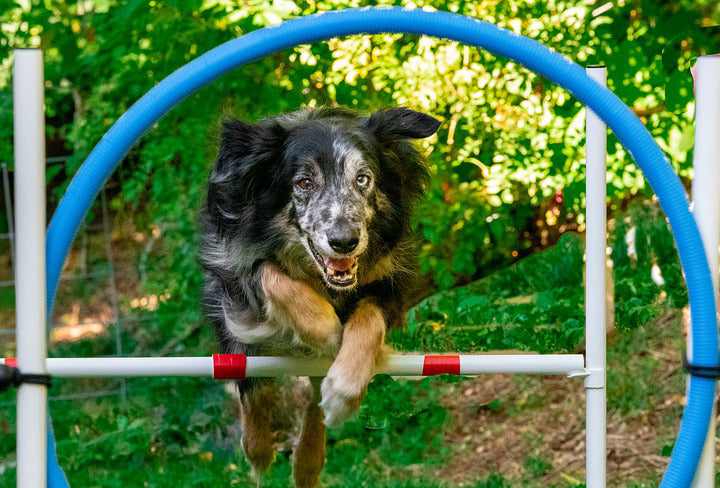Arguments have been made about the origins of Australian Shepherds. Even though the name of the breed has ‘Australian’ in it, it is a dog that is native to the United States.
The history of the Australian Shepherd started way back in the 16th to the 17th century. The Spanish missionaries have migrated to America and established what would become West America. They brought with them their livelihood, which included sheep, horses, and cattle.
To protect their livestock from wild animals, they bred herding dogs. The first Spanish settlers bred Pyrenean Shepherds (one of the oldest herding dogs). It was believed that the Australian Shepherd came from this breed.
This breed has been developed mainly as herding animals. But they can also be used as companions.

They are commonly referred to as the ‘Aussie’. Other names include North American Australian Shepherd, American Shepherd, California Shepherd, New Mexico Shepherd, Rodeo Dog, Spanish Shepherd, Pastor Dog, Wigglebutt, Velcro Dog and Bob-Tail.
Traits and Behavior
Australian Shepherds have good people skills. They love to be around their families and can be quite affectionate to the people they are familiar with. However, if left untrained, they can still show signs of aggression and may have destructive tendencies.
They are fairly good with children, especially when they are trained properly. But, due to their herding instincts, they may nip at the feet.
This breed is average when it comes to other dogs. With proper training, they socialize well with other dogs.

But they sometimes show dominance, territoriality, and possessiveness, especially the males. When it comes to other animals, they aren’t that aggressive.
This breed is very intelligent and can learn fast. However, they can get stubborn and are highly independent. So, consistency is a must when training Aussies.
These high-energy dogs are suitable as working dogs, pets and companions. But great care should be taken to live happily with an Australian Shepherd.
Pet Care and Diseases
This dog needs a lot of exercise daily. It is ideal for an Australian Shepherd to have 2 to 3 hours of rigorous activity. It enjoys games like Frisbees, Catches, Retrievals and activities that involve burning a lot of energy.
If not given an adequate amount of exercise, this dog can become aggressive, anxious and destructive.
This breed needs some special care for its coats. Regular brushing should be done, and the tangles should be removed.

Even so, they don’t need any professional grooming. Owners should take note that this breed is a shredder. Take appropriate care.
Australian Shepherds are known to suffer from serious health problems that include dysplasia, eye degeneration, deafness and spinal defects.
To prevent such problems, the dog can be checked by the Orthopedic Foundation for Animals (OFA) and the Canine Eye Registration Foundation (CERF).
Appearance
Australian Shepherds are medium-sized dogs. The males stand at about 20 to 23 inches while the females are at 18 to 21 inches. They usually weigh 50 to 65 pounds for males while the females are lighter at 40 to 55 pounds.
They look like other Collie-type herding dogs, but with some distinctions. Their coats have two layers, a weather-resistant outer coat covering a dense undercoat. It is moderately long and is either straight or wavy.
The breed comes in four different colors: black, red, blue merle and red merle. Australian shepherds are usually stocky and heavily built.
It is because they were bred for herding. Its tail is quite distinct, too. It has the characteristic bob shape.

Its ears are triangular and moderate in size. They are folded towards the side of the dog’s face. However, they may have pricked, semi-pricked ears or a combination of both (one pricked, one folded down.)
General Information
The average lifespan of the Australian Shepherd is about 12-18 years. The estimated litter size is 6-9 puppies. The “ghost-eye” dog is a nickname for the breed. They are also sometimes known as a “velcro dog” for their tendency to latch on to one particular individual.
Breed Club
Visit this dog club website dedicated to Australian Shepherds. Click this link: https://www.asca.org/

